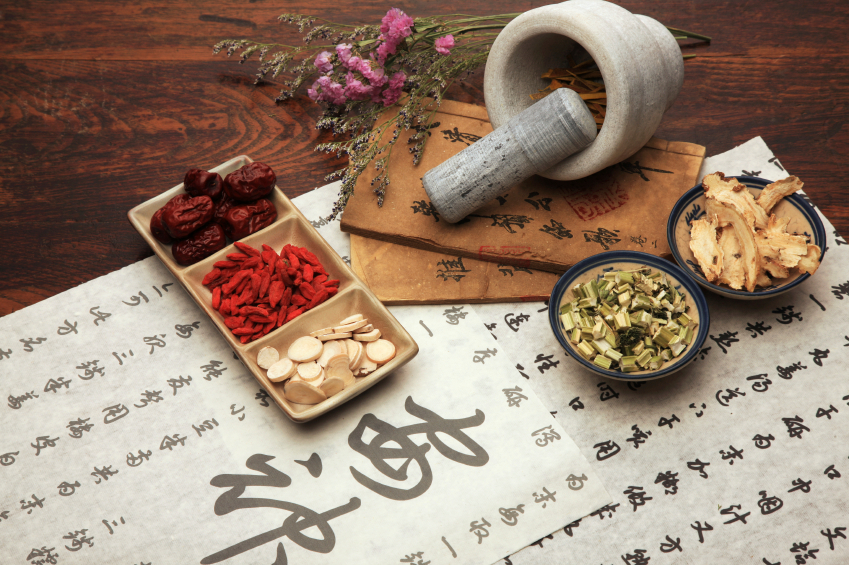 Changes made to state laws have opened the door for certified herbal therapists to prescribe custom Chinese herbal therapy blends and traditional formulas to patients within a clinical practice. Instead of having to travel out of the state for herbal therapy – to use alone or as a supplement to other prescription medications – Northeast Ohio residents now have two options close to home.
Changes made to state laws have opened the door for certified herbal therapists to prescribe custom Chinese herbal therapy blends and traditional formulas to patients within a clinical practice. Instead of having to travel out of the state for herbal therapy – to use alone or as a supplement to other prescription medications – Northeast Ohio residents now have two options close to home.
Chinese herbs may be used for a variety of things, such as to alleviate chronic conditions such as sinusitis and insomnia; to help decrease cold and flu symptoms and pain; to regulate menstrual cycles in women trying to conceive; and to improve digestion.
Other candidates for herbal therapy are patients who have multiple, complex symptoms; have exhausted other medical treatment options; or need additional therapy to counteract the side effects of prescription medication.
In early 2013, the State Medical Board of Ohio began regulating the practice of Oriental medicine, which includes the practice of acupuncture and the use of herbal therapy.
Chinese Herbal Therapy
That paved the way for the Cleveland Clinic and University Hospitals to each hire an acupuncturist who is also a certified herbal therapist.
Since January, the Chinese Herbal Therapy Clinic at the Cleveland Clinic has been operating as part of the Center for Integrative Medicine (recently named in honor of Dr. Tanya Edwards, the center’s medical director) in Lyndhurst.
And this month saw the start of herbal medicine consultations at University Hospitals Ahuja Medical Center in Beachwood, through the Connor Integrative Medicine Network.
“Patients over the years have really been seeking out Chinese herbs and a lot of physicians had been contacting us asking if we used Chinese herbs,” said Jamie Starkey, the lead acupuncturist at the Center for Integrative Medicine – housed within the Cleveland Clinic Wellness Institute – and one of five acupuncturists on staff.
Starkey, who manages the Clinic’s acupuncture and Chinese Herbal Therapy clinics, conducted a national search to recruit an acupuncturist who was also trained and licensed in Chinese herbal medicine.
Now, instead of wondering what type of herbal therapy patients are taking, and where they got it, the new law allows for complete oversight, Starkey said. “We can chart everything the patient is taking and look for herb-herb and drug-herb interaction,” she said.
In recent years, health care providers have become more informed about the benefits of acupuncture and Eastern medication, Starkey said. Acupuncture has proved to be beneficial for cancer patients dealing with the side effects of radiation and chemotherapy, for example. For patients with other conditions who don’t respond to acupuncture, herbal therapy is now an option. All herbal therapy patients are closely monitored, with regular checks of their liver and kidney function.
The Clinic gets its Chinese herbs from Crane Herb Company in Massachusetts. Along with Crane, UH’s herbs come from the Institute for Traditional Medicine in Portland, Oregon and Mayway in Oakland, California.
The Clinic requires a physician referral for Chinese herbal therapy. No referral is needed for an herbal medicine consultation at UH.
“I wanted to make sure not only patients had access to an herbalist but the highest quality of herbs,” Starkey said. “I needed to make sure the products carrying were of utmost quality.”
“Now we’re able to offer a more well-rounded approach to care,” Starkey said.
In January, Jaclyn Yoder of Broadview Heights began taking a special herbal blend, mixed with water, to help treat her allergies.
Source: http://blog.cleveland.com/health_impact/print.html?entry=/2014/03/chinese_herbal_therapy_available_at_cleveland_clinic_university_hospitals.html












[…] Not only has the Cleveland Clinic brought acupuncturists on board, they are also working with Crane Herb to prescribe Chinese Herbs to patients. Recent research has shown that Chinese herbs can help […]